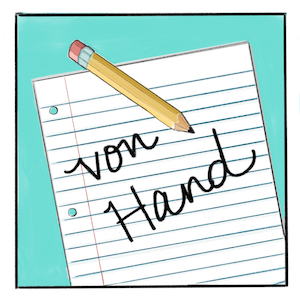In dieser Lektion
Wortschatz
Hanna plant ihren Hausputz
Am Ende des Semesters muss ich meine Wohnung putzen. Ganz wichtig sind das Bad und die Küche. Ich putze oft nach dem Kochen und dem Duschen, aber jetzt habe ich mehr Zeit und kann mehr und gründlicher putzen, weil ich nicht an die Uni muss. Ich will auch unter den Möbeln staubsaugen und endlich wieder mein Bücherregal und die Kommode im Wohnzimmer abstauben. Heute nachmittag gehe ich einkaufen, weil ich Putzmittel brauche.
In Hanna’s description of her plans for cleaning, you might not understand everything. But you can recognize the pieces of furniture and rooms to help you guess what and how she cleans. Putzen- to clean comes up in the text in various combination. Predict what the words mean.
Womit putzt man?
Here are some utensils for cleaning.
Was macht man beim Putzen?
Sprechen
Arbeiten Sie mit einer Partnerin/einem Partner und sprechen Sie über die Bilder unten: what type of cleaning happened or needs to happen in the images?
Hören
Hören 1: Britt
Arbeit mit dem Hören 1
What does Britt do daily, weekly, rarely? Was macht Britt jeden Tag, was putzt sie einmal in der Woche und was macht sie selten?
Britt und ihre Tochter wohnen zusammen. Was putzt sie?
At the end of the interview, Britt describes a process. There are certain terms which are typical for this type of genre. Brainstorm some words and ideas that you expect to encounter in this context.
Now listen to Britt’s description of her cleaning process one more time and answer the following questions.
Schreiben
Britt putzt ihr Klo nicht gern. Was putzen Sie gern? Und was putzen Sie nicht gern? Notieren Sie sich zwei Beispiele (examples) für jede Kategorie.
Hören 2: Isolde
Arbeit mit dem Hören 2
Sprechen
Vor dem Sprechen
What do you do daily, weekly, and only infrequently in terms of cleaning? If you live with others, who does what? Jot down some ideas in chart form, as outlined below.
| Was für Hausarbeit machen Sie… Wer macht das? | täglich? | wöchentlich? | selten? |
|---|---|---|---|
| ich | z.B. Geschirr spülen | z.B. Wäsche waschen | z.B. Fenster putzen |
| — | — | — | |
| — | — | — | |
Now expand: what supplies do you need to accomplish the cleaning chores that you outlined in the chart? Add the necessary supplies to your chart.
Interview
Imagine that you are moving in with 2-3 classmates. Together with those people, make a plan for who is going to clean what, and how often. Take notes for a writing assignment!
Roleplay
Wer macht was? Imagine that you and your partner live together. You are trying to set up a schedule for cleaning. Decide who takes on what. Use the list below to make your decisions.
Bad putzen oder Küche putzen
kochen oder Geschirr spülen
abstauben oder einkaufen
staubsaugen oder Boden putzen
Strukturen
Separable prefix verbs
In the last lesson, you worked with separable prefix verbs already. Here is a closer look at the meaning of high-frequency prefixes in the context of cleaning.
In the context of putzen, many of the verbs begin with ab- because it denotes the idea of removing something.
In English, this notion is expressed with the separable preposition off as in to dust off, to wash off. Often we specify the object (to wipe off the table), but sometimes people drop this extension, ending the expression with the preposition.
ab/stauben – to dust off
ab/trocknen – to dry off
ab/waschen – to wash off
ab/wischen – to wipe off
Auf-, too, is used with several verbs, introducing the meaning of clearing something up.
auf/heben – to pick up
auf/räumen – to clean up
Auf- can also carry the meaning of open(ing) versus close(ing), as in die Tür aufmachen or das Fenster zumachen.
auf/machen – to open up
zu/machen – to close down
Some of the prefixes are transparent, such as sauber = clean and staub = dust. They are not used widely, but almost always in combination with the verbs below.
saubermachen – to clean
staubsaugen – to vacuum
Write a sentence with one of the verbs starting with ab-, with one of the verbs starting with auf-, and with staubsaugen or saubermachen.

